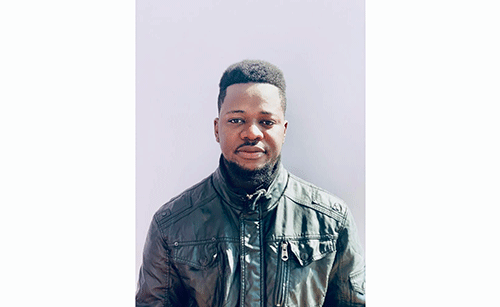Petrus Mbidi
There is more than one way to achieve increased development and success within our region. However, it cannot be done when political parties and their leaders are more interested in creating and engaging in political conflicts. Capable state leadership is what we should be striving for within the region since incapable leaders are only interested in milking the state for their own personal gain.
Reports from various camps of political parties within the region over the past years have been shocking, and it’s worrisome to realise that political leaders are prepared to surpass expectations to a point as far as wanting to kill an African brother or sister, all in the name of positions and power.
I for one know of a brother and a former undergraduate student colleague, Joseph Kalimbwe, who has received serious death threats and defamatory remarks. Mr Kalimbwe only advocated for his fellow Zambian nationals to vote for the United Party for National Development (UPND) of the present Zambian president Hakainde Hichilema, instead of former president Edgar Lungu and his Patriotic Front (PF).
Moreover, other threats to his personal and political career came from some cadres of the Zimbabwe African National Union – Patriotic Front (ZANU-PF) because he chose to support and express his political opinion, which is to favour and advocate for Zimbabweans to vote for Nelson Chamisa and his party the Movement for Democratic Change (MDC). The continuous remarks from Mr Kalimbwe are being made to support the MDC and its presidential candidate Nelson Chamisa, instead of the ZANU-PF and current country president Emmerson Mnangagwa. The message we can learn from the case study of Joseph Kalimbwe is that as much as disagreements are part of the political arena, the shift towards wanting to create any form of brawl of any sort is totally an act of devilment and is undeserved.
Moving on, credit must be given to liberation movements for bringing us political independence within the region. Nonetheless, political parties such as the African National Congress (ANC), South West Africa People’s Organisation (SWAPO), ZANU-PF, the People’s Movement for the Liberation of Angola (MPLA), PF, and the Botswana Democratic Party (BDP) have been in power for decades, and it is safe to say that they have gotten comfortable in doing things their way. In the modern political world, loyalty is reserved for political parties that are honest and realistic with their followers. The indirect fighting between the former president of BDP and its current president, as well as the divisions within the ANC and SWAPO, are serious cases that are capable of destroying any political formation. On a positive prospect, it could be a perfect time for these liberation movements to bet on young people as they (young people) are desperate to prove themselves, and it might turn out as another way in which the longevity of these liberation movements could be preserved. However, it is unlikely because political parties such as SWAPO have amended their constitution to legally restrict young people to occupy key positions such as the presidency, and the secretary general post.
Advisably, within the region, there is a need to deal directly with acts of dictatorship, terror and xenophobic activities, oppressive regimes, corruption and arrogance. The politics of silent diplomacy is not doing our region nor the continent any favour. We, through our governing institutions regionally and continentally, have to call out human rights violators for what they are, which is oppressors. The time to play safe with the dejected political masses of the region is of yesterday, or the only way these liberation movements will continue to be in power after the upcoming national election in each country might be through the rigging of elections. African citizens are tired of keeping these political parties in power on the ticket of political independence. There is a shift in what Africans want to see, and it is development, increased employment opportunities, poverty alleviation, reduction in unemployment, peace and stability, and economic stability and independence. The Africa that is wanted is attainable, our political leaders should just STOP thinking and taking for their stomachs!
The same reason how liberation movements were formed to fight for political independence and to end the war with various colonies, is the same way the new political parties such as the Economic Freedom Fighters (EFF) were formed to fight for economic independence, and to put an end to bad governance as a result of the liberation movements. The other thing that we have to question is the multi-party political system that does not seem to be working since most newly-established political parties fail to make a real impact. It would probably be best if most of these opposition parties could be dissolved into one party in order to get stronger and make a real impact, the exact same way parties come together to form a coalition. As it stands, the multi-party political system within the region tends to favour liberation movements, and it is one of the key reasons why it has been hard to see decisive change in state leadership, although it happened in Zimbabwe (the period when the late Morgan Tsvangirai was forced to settle as a prime minister), and in Zambia in 2021.
The fight within the public space of the southern region and the entire continent at large has to be to interconnect the continent in terms of development. But from the look of things, the fight in every country is aimed at aiding conflicts. Young people in politics today are silenced with meaningless positions in order to control and restrict them from acting as well as talking about what is just and unjust within the public space. There is an urgent need to drastically improve, that is why it is always of the essence to put the right message across for the betterment of every single country, the Southern African region, and the great African continent.



